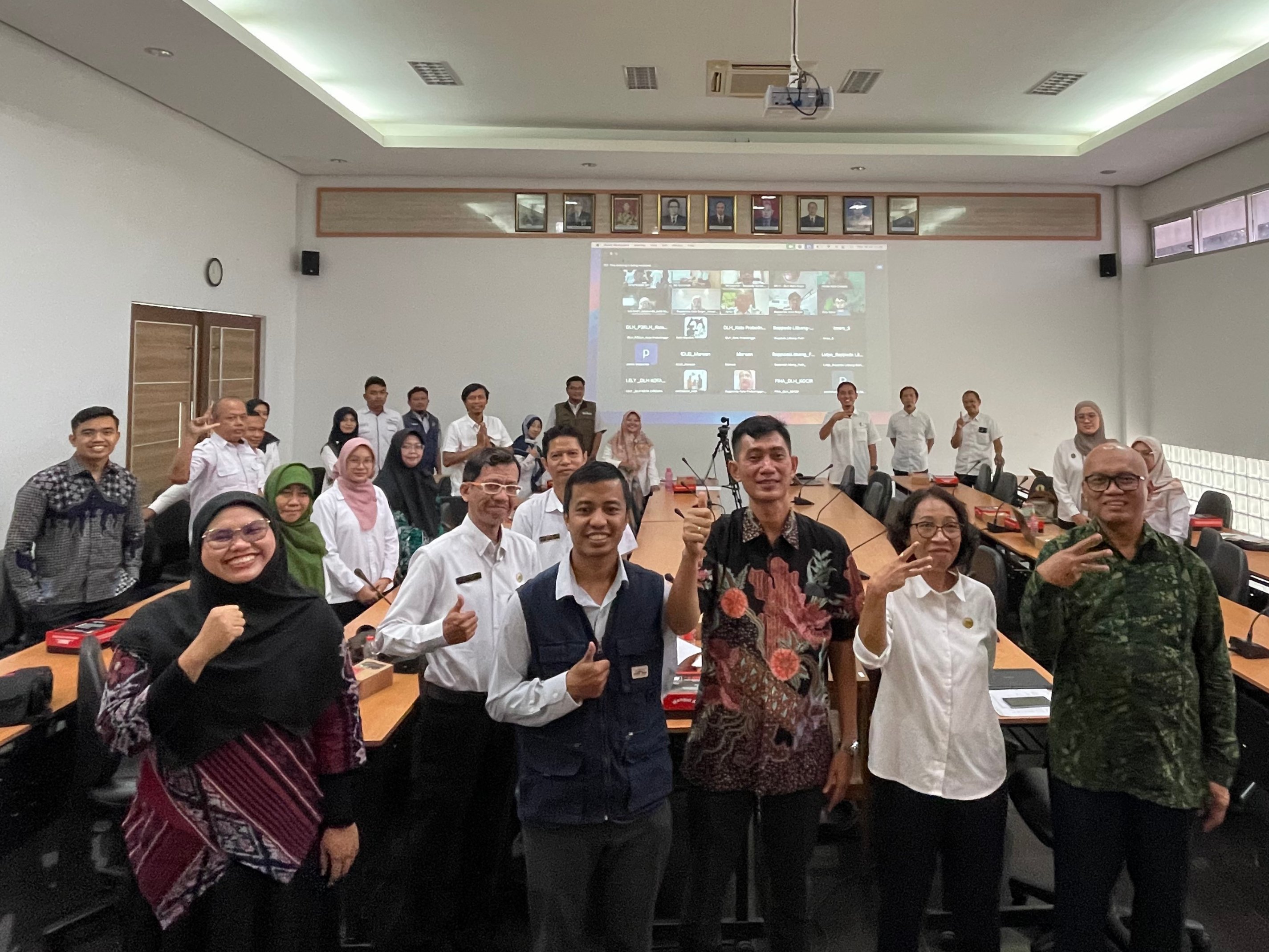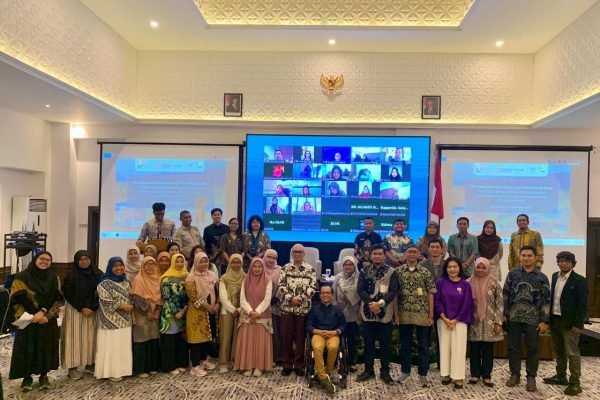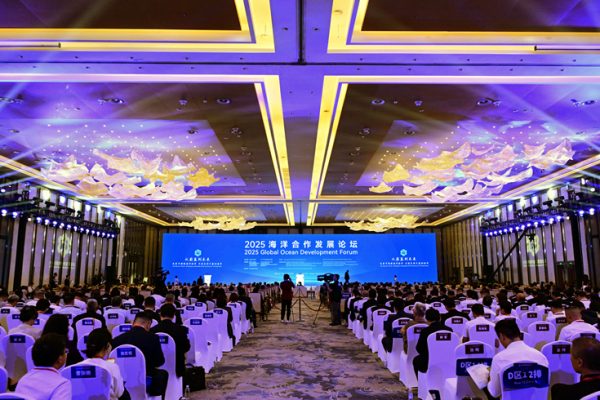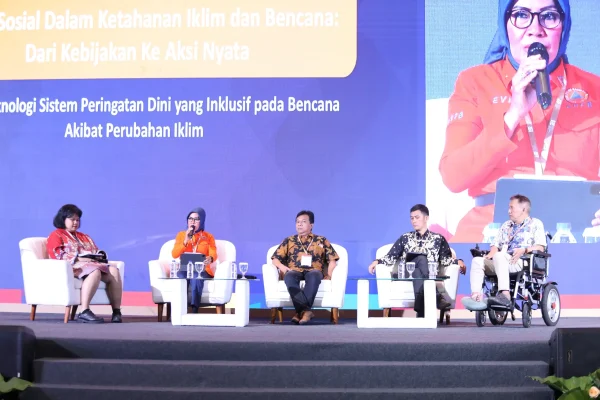The third capacity-building session was held in person in Yogyakarta on 17 July 2025, drawing around 30 local government units from various sectors for a learning session.
Between mid-July and late August 2025, the RENEW-SEA project held a series of training sessions and knowledge-sharing events in Indonesia. Led by ICLEI Indonesia, the activities engaged over 150 energy stakeholders, including local government units (LGUs), national institutions, private sector, academia, and associations.
As a RENEW-SEA deep-dive city, the Special Region of Yogyakarta (DIY) served as the program’s focal point to foster institutional and technical capacity for energy planning. Beyond the city, the project also facilitated multi-level dialogue and peer learning, engaging more than 15 cities and LGUs throughout Indonesia.
A third capacity building session was held in-person in DIY on 17 July, focusing on innovative, community-based financing for renewable energy (RE) and energy efficiency (EE). Previous capacity-building dates laid the groundwork by exploring RE/EE technologies and the policy landscape from national to local levels.
Media Wahyudi Askar, Director of Fiscal Justice at the Center of Economic and Law Studies (CELIOS), presented how local governments can access global financing and emerging funding models, including green bonds, regional sukuk (Islamic bonds), and crowdfunding. He cited examples of West Nusa Tenggara’s use of regional budgets to provide interest-free energy transition incentives, illustrating how inclusive, community-centered financing can deliver scalable and sustainable impact.
Additionally, Yustina Ika Kurniawati, Head of the Energy Division at the Yogyakarta Energy and Mineral Resources Office (PUP-ESDM), emphasized the need to expand regional enterprises. This, she noted, could help attract international funding and improve impact measurement.
The discussion also spotlighted community-based financing initiatives, including rooftop solar in Indonesia Climate Villages (Kampung Iklim), youth-led initiatives in Sleman Regency, mini-hydro and biogas programs, and expanded solar installations on public buildings.
National Policy Dialogue to Accelerate Local Action
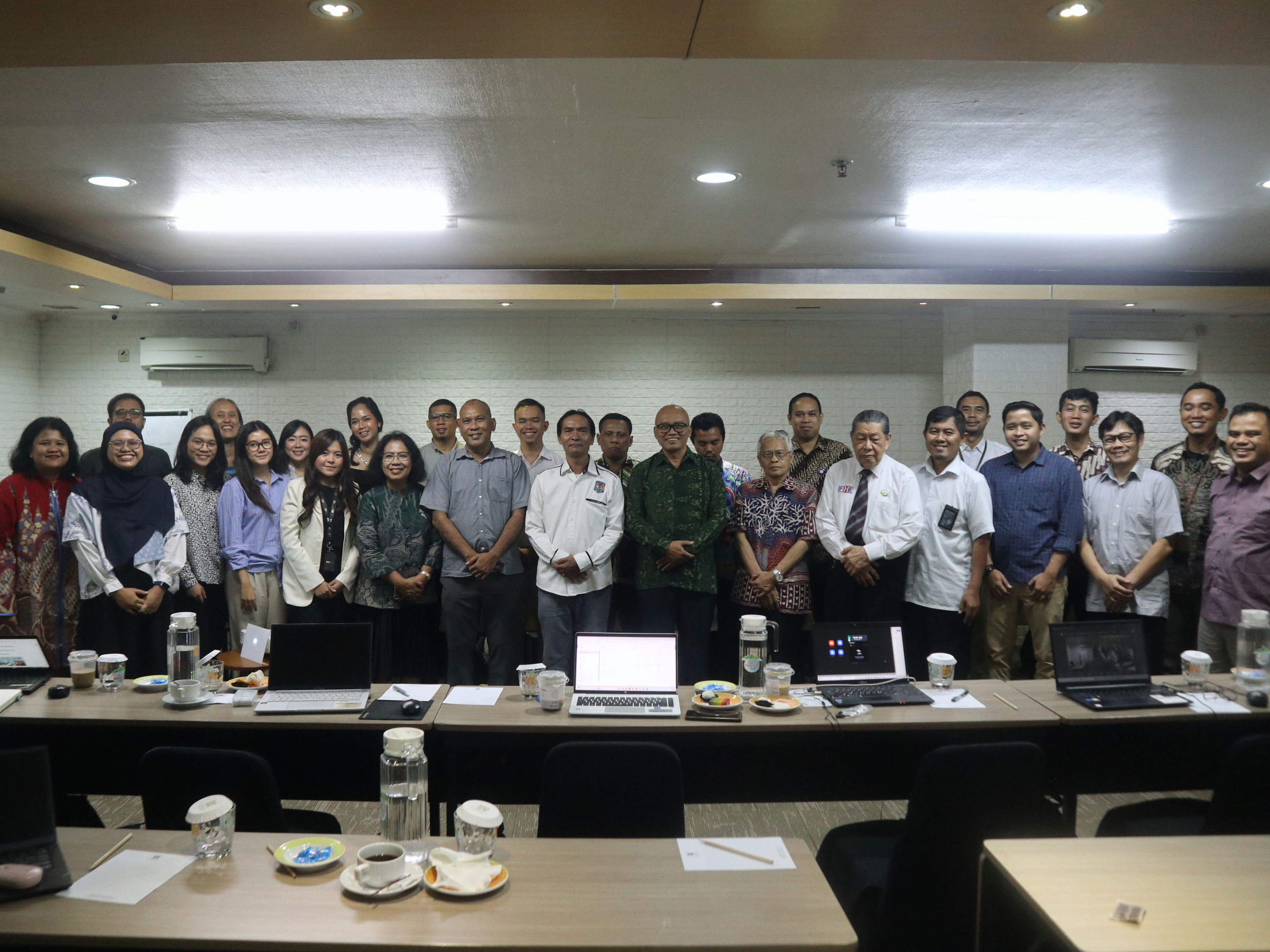
The MLG Dialogue saw nearly 50 in-person and hybrid participants, representing a wide range of stakeholders from government, associations, and the private sector, on 7 August 2025.
In an effort to inform policy briefs in English and Bahasa, a multi-level governance (MLG) dialogue on 7 August in Jakarta brought together over 60 participants—both in person and online—to connect local strategies with perspectives from national to association-level stakeholders.
Key participants included representatives from national and local governments, state-owned enterprises, development partners, NGOs, and private sector associations. Among them were the Ministry of Energy and Mineral Resources (ESDM), the Ministry of Home Affairs, Ministry of National Development Planning (Bappenas), the Ministry of Environment and Forestry, the state electricity company PT PLN, PT SMI, the Association of Indonesian Municipalities (APEKSI), and the Indonesian Renewable Energy Society (METI), among others.
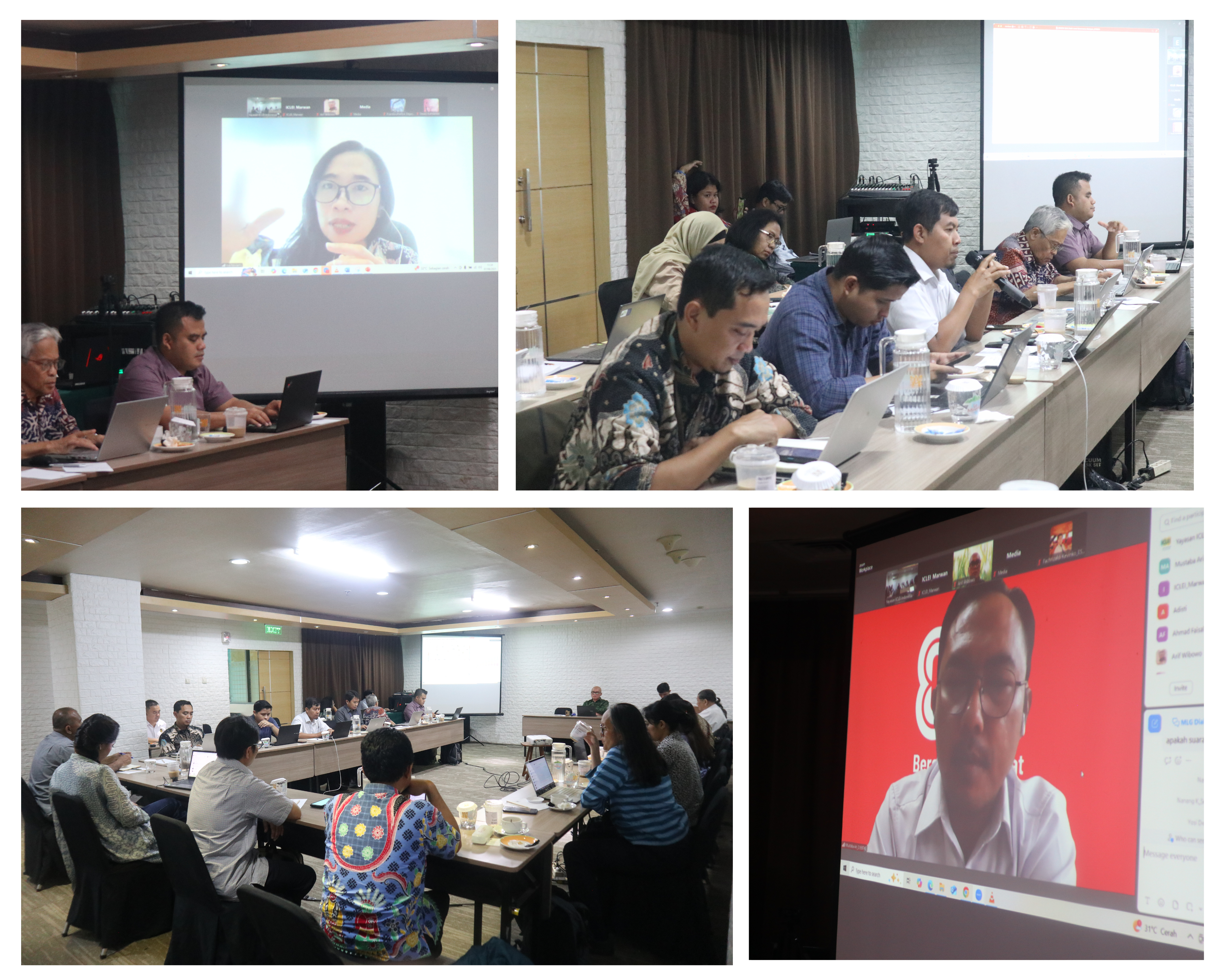
The MLG Dialogue on 7 August 2025 featured virtual presentations from national government representatives, including the Ministry of Home Affairs and the Ministry of Energy, followed by discussions with a wide range of stakeholders from national and local governments, NGOs, CSOs, and the private sector
The MLG dialogue opened with an overview of Indonesia’s energy policy framework and the designated authority of local governments in utilizing their potential and mandates in the energy transition, followed by a discussion on the challenges faced by local governments in advancing the transition.
DIY shared how the region faced structural hurdles, including limited renewable energy potential and a high dependence on the state electricity company PLN. Despite these challenges, the province has surpassed its renewable energy target of 6.6%, reaching 7.65% in 2024 largely due to biodiesel use. Rooftop solar capacity also increased sevenfold from 2019 to 2025, reaching 5.43 MW, driven by streamlined permitting via PLN.
Alternative financing emerged as a key theme. PT SMI shared its mechanisms for local energy action plans and innovative pilot projects which currently support 82 local governments. One example is Jakarta’s refuse-derived fuel (RDF) project in Bantargebang which processes 2,000 tons of both old and new waste daily, converting these into 750 tons of RDF. This technology helps in transforming urban waste into an alternative energy source for industry.
Other key inputs include promoting local financing schemes to support energy efficiency and renewable energy projects in the urban and industrial sectors. Local governments were also urged to actively assess and pursue their renewable energy potential. Meanwhile, associations and institutions such as ICLEI are encouraged to develop replicable frameworks for adoption by other local governments.
Lessons from Cities on Local Energy Transitions
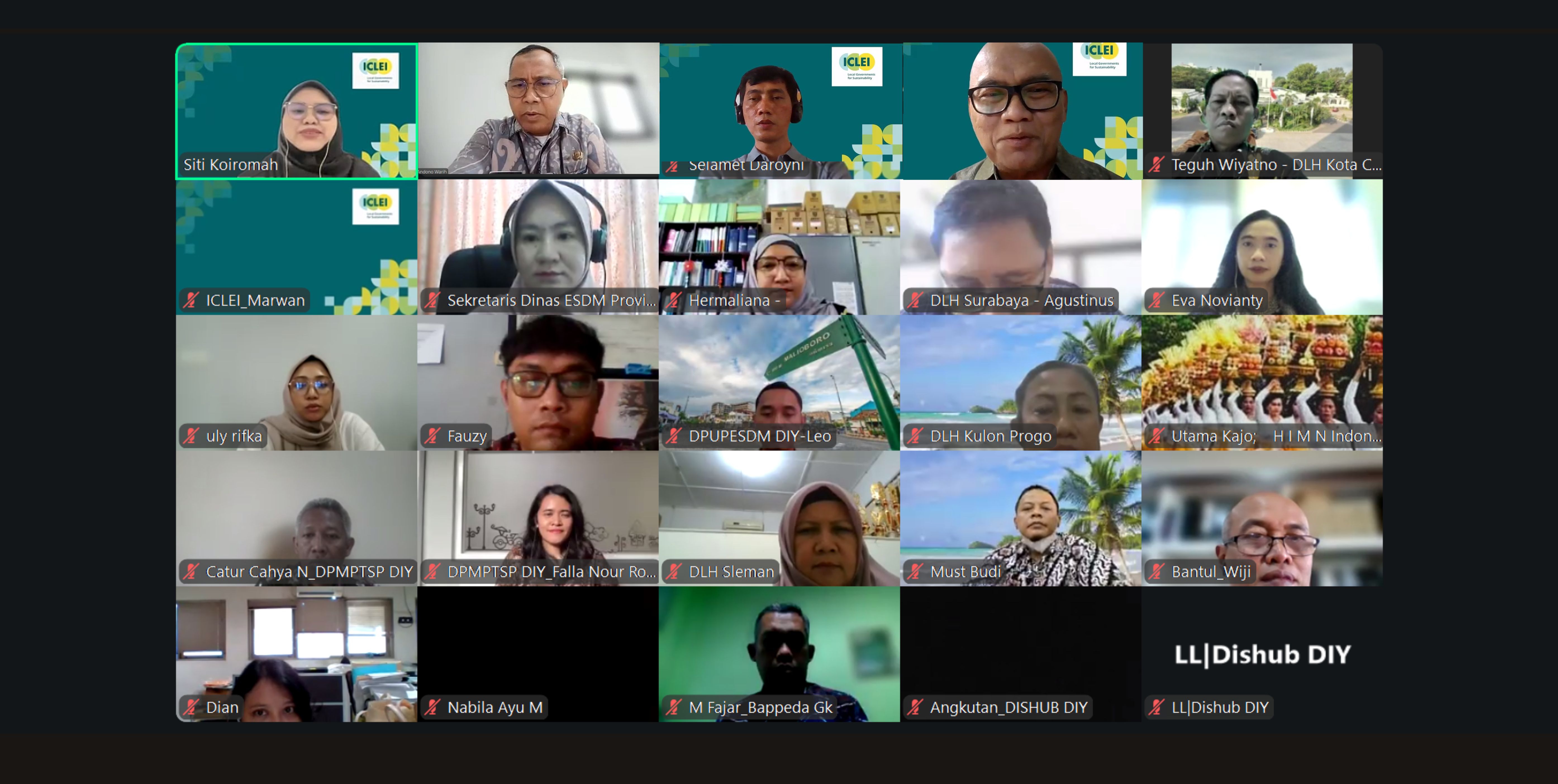
The peer exchange under the RENEW-SEA project brought together more than 50 participants from over 15 network cities and regencies across Indonesia on 28 August 2025.
Marking the culmination of the program, a virtual peer exchange held on 28 August benefited over 50 LGUs from more than 15 network cities committed to the local energy transition.
As the program’s capstone, this session enabled cities to learn from one another—translating lessons into actionable strategies.
Yogyakarta, DKI Jakarta, and West Nusa Tenggara (WNT) provinces each brought their own case studies to the table, highlighting both obstacles and progress in their clean energy journeys.
Yogyakarta is known for its vibrant tourism industry, making a reliable electricity supply crucial. However, the province lacks large-scale power plants and remains heavily dependent on PLN and Pertamina for its energy needs. Despite this, the awareness and engagement of the community, academia, and public in renewable energy are strong. The local government has established a regional energy task force under a Governor’s Decree to develop local renewable energy potential and actively collaborates with the private sector, particularly through CSR programs that support RE initiatives such as biogas development.
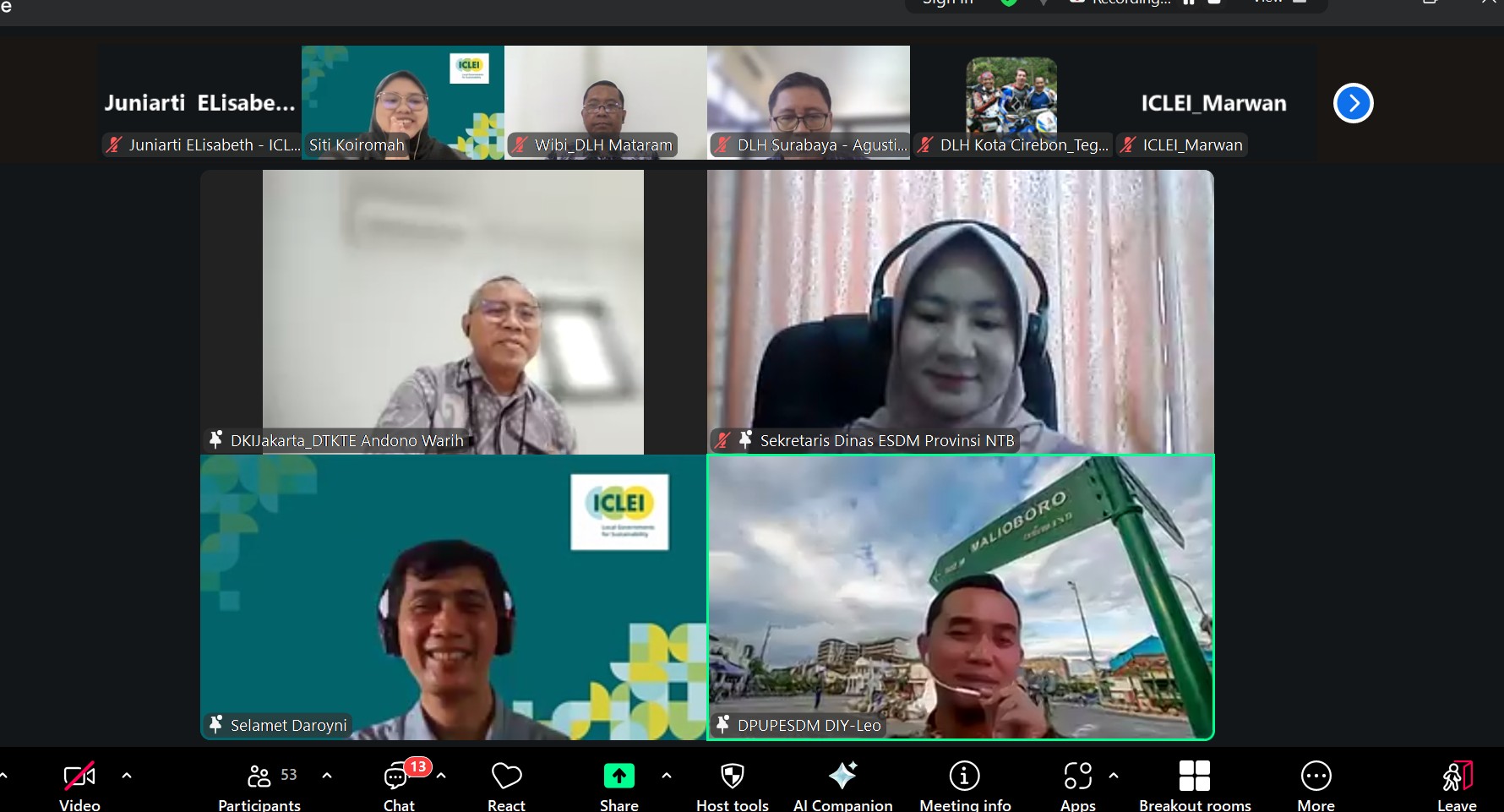
During the sharing session on August 28, 2025, three key speakers—Andono Warih from DKI Jakarta, Niken Arumdati from from NTB province, Leo from DPUESDM from Yogyakarta—along with Selamet Daroyni, ICLEI Indonesia Senior Project Officer, engaged in a discussion sharing experiences on local energy transition from their respective regions.
DKI Jakarta, Indonesia’s economic powerhouse, is strengthening its policies to create an enabling environment that engages private actors. One key policy, Pergub 90/2021 includes the expansion of rooftop solar PV (PLTS Atap) as a major climate action. By 2025, Jakarta’s rooftop solar capacity has reached 34 MWp, with 30 MWp coming from private investments. This demonstrates the crucial role of local governments in promoting and supporting the adoption of rooftop solar PV across commercial, public, and industrial sectors.
Meanwhile, WNT stands out for its ambitious commitment of achieving 100% renewables by 2050. It emphasizes inclusivity and collaboration to strengthen institutional capacity and ensure that policies are integrated into regional planning (RPJMD) and embedded within each local government agency’s programs. Notably, WNT has implemented household-scale biogas projects in collaboration with Yayasan Rumah Energi/HIVOS and advanced this technology through CSR initiatives at the community scale. At the commercial level, PT AMMAN utilizes solar energy with a capacity of 26.8 MWp, with further expansion plans underway.
Each experience demonstrates how urban development and climate goals can align through supportive policies. These create an enabling environment that helps achieve national renewable energy targets while delivering co-benefits to local communities.

